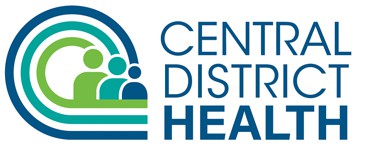Summary
Rates of syphilis and other sexually transmitted infections (STIs) continue to rise across the Treasure Valley and beyond. In 2018, CDH identified 52 syphilis infections in Ada, Boise, Elmore, and Valley Counties. Since January 1, 2022, CDH has identified 168 cases of syphilis. Of these:
- 94 (56%) were primary, secondary, or early non-primary non-secondary infections (acquired <12 months)
- 63% of the early infections (acquired <12 months) occurred in patients who are NOT men who exclusively have sex with other men
- Patient age range: 15 to 87 years old
- Patient sex: 75% males, 25% females
- 12% of females were pregnant at time of diagnosis
- No confirmed congenital syphilis cases were reported
Healthcare providers play a critical role in stopping the spread of this outbreak and preventing congenital syphilis. CDH and SWDH urge providers to increase screening for STIs, including syphilis and HIV. We also encourage providers to start a dialogue with their patients about their sexual health history as part of routine medical care. Some patients may not be comfortable talking about their sexual partners or sexual practices, and simply offering all testing options may be the best approach.
Testing
Please consider testing for syphilis and HIV if a patient presents with:
- Any ano/genital or oral lesion, especially indurated and minimally painful ulcers
- Unexplained diffuse rash or plantar-palmar rash
- Unexplained lymphadenopathy
- Unexplained ocular disease (i.e. uveitis, panuveitis, diminished visual acuity, blindness, optic neuropathy, interstitial keratitis, anterior uveitis, retinal vasculitis)
Genital sores (chancres) caused by syphilis make it easier to transmit and acquire HIV infection sexually. There is an estimated 2- to 5-fold increased risk of acquiring HIV if exposed to the virus when syphilis is present. Because of this and other factors, the CDC recommends testing for HIV when testing for syphilis – even if the patient has tested negative for HIV in the past.
In addition to the CDC’s current screening recommendations, local data support expanding screening for syphilis and HIV when one or more of the following criteria is present:
- Persons meeting sexual partners via apps or the internet
- Persons who do not routinely use condoms and have multiple sex partners, or one sex partner who has additional partners
- Persons with anonymous sexual partners and/or multiple sexual partners with unknown risk factors
- Persons with a history of unstable housing or experiencing homelessness
- Persons who use drugs (PWUD), or who have sexual partners who use drugs
- Persons with justice involvement in the past 12 months
Treatment
Treatment for syphilis is dependent upon the stage and clinical manifestations of the infection. Be aware of neurosyphilis, ocular syphilis, and otosyphilis: these can occur at any stage of the disease, and require additional evaluation and treatment in collaboration with specialists.
The CDC recommended treatments for uncomplicated syphilis infections are:
- Primary, secondary and early non-primary non-secondary syphilis (acquisition within the preceding 12 months):
- Benzathine penicillin G 2.4 million units IM x 1 dose (this is usually administered via two syringes containing 1.2 million units each)
- Late latent syphilis (acquisition greater than 12 months prior to diagnosis) or latent syphilis of unknown duration:
- Benzathine penicillin G 7.2 million units total, administered as 3 doses of 2.4 million units IM each, at 1-week intervals
Partners and Contacts
In order to stop the spread of infection, seize every treatment opportunity. The CDC recommends the following:
- Persons who have had sexual contact with a person who receives a diagnosis of primary, secondary, or early latent syphilis <90 days before the diagnosis should be treated presumptively for early syphilis, even if serologic test results are negative.
- Persons who have had sexual contact with a person who receives a diagnosis of primary, secondary, or early latent syphilis >90 days before the diagnosis should be treated presumptively for early syphilis if serologic test results are not immediately available and the opportunity for follow-up is uncertain. If serologic tests are negative, no treatment is needed. If serologic tests are positive, treatment should be based on clinical and serologic evaluation and syphilis stage.
- Expedited partner therapy (EPT) in the absence of serologic testing of sexual partners is NOT recommended for syphilis. Evaluating a patient’s serologic results is critical when determining treatment, treatment failure, or reinfection. If the cost of testing is a barrier, please call your local health department for assistance.
Considerations for Pregnant Individuals
Syphilis of any stage can be transmitted to a fetus during pregnancy, causing congenital syphilis. Providers should continue to screen all pregnant individuals serologically for syphilis at the first pregnancy-related visit. Additional serological testing should be performed at 28-32 weeks gestation and again at delivery if the patient reports having multiple sex partners, has been diagnosed with any sexually transmitted infection (including syphilis), or has a sex partner diagnosed with syphilis. Any person who has a fetal death after 20 weeks gestation should be tested for syphilis, even if screening was performed early in pregnancy.
Benzathine penicillin G is the only recommended treatment for preventing transmission to the fetus and treating fetal infection.
Additional Resources
Communicable Disease staff at CDH (208) 327-8625 or SWDH (208) 455-5445.
Clinical Consultation Service: National Network of STD Clinical Prevention Training Centers: https://www.stdccn.org/render/Public
#####

